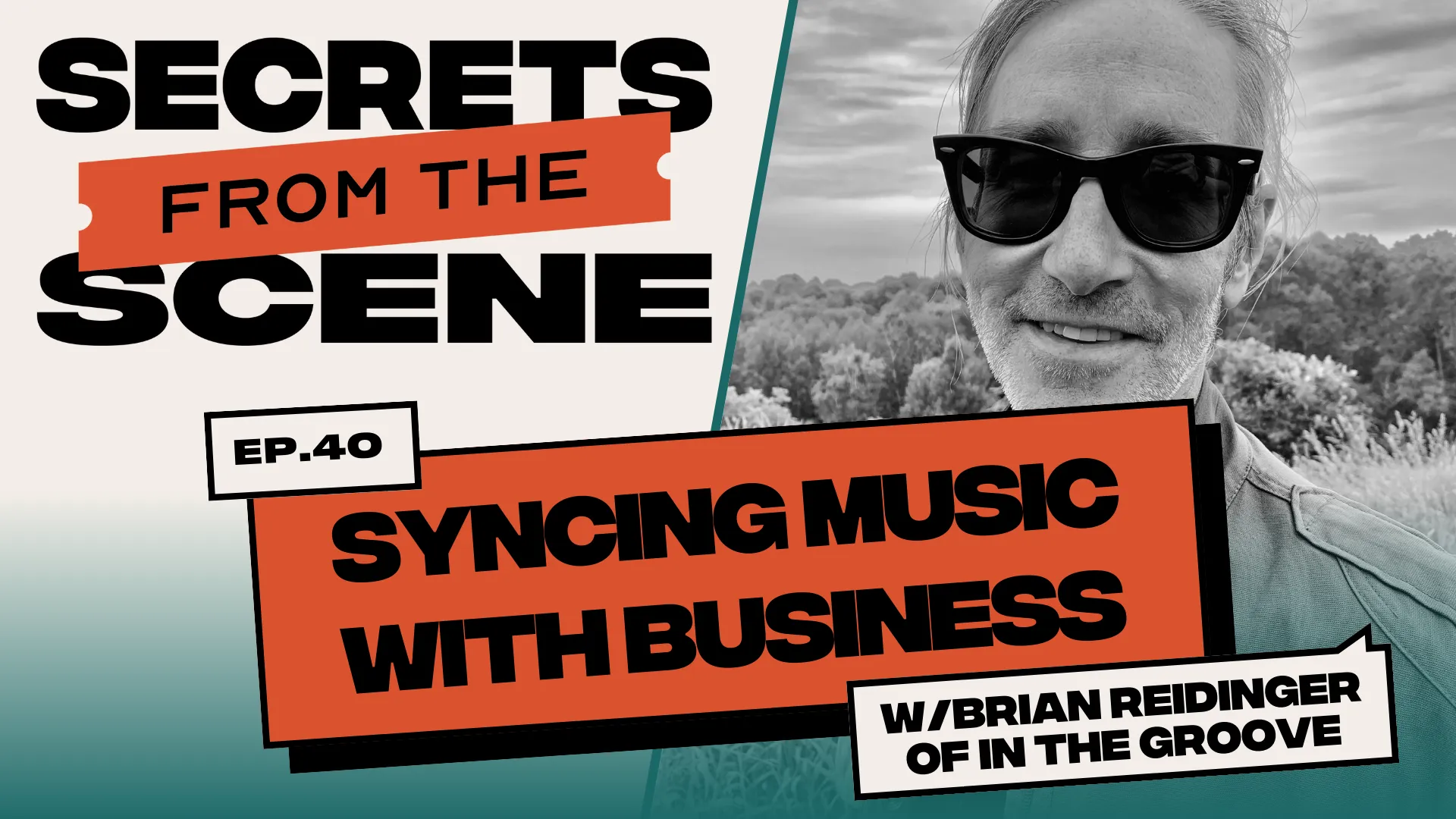Show Notes
In episode 40 of Secrets From The Scene, I sit down with Brian Reidinger, co-founder of In The Groove, a sync company celebrating three decades in business. Brian shares the story of how In The Groove started, detailing his own journey from an aspiring rock drummer to a successful business owner with Darren Drew. The episode covers the challenges faced, the importance of understanding the business side of music, and the ethos of In The Groove, which focuses on advocating for artists and maintaining a values-based company culture. Brian discusses various deal structures for musicians interested in sync opportunities and provides advice for aspiring musicians on the importance of preparation, persistence, and realistic expectations. This episode provides valuable insights into the sync industry and offers advice for musicians looking to get their work placed in media.
watch now on YouTube:
Episode Links and Mentions
Connect with the Guest
Connect with Me
Give Feedback
📬 Send me a message: stephen@secretsfromthescene.com
💬 Suggest a guest or topic: podcast@secretsfromthescene.com
🎙️ Brought to you by:
--------------------------------
Thank You
This podcast is made possible by the hard work, expertise, and commitment of my team:
Max Greene and Joey Biehn. I'm forever grateful.
--------------------------------
Theme Music: "Thankful" Courtesy of LUEDVIG

